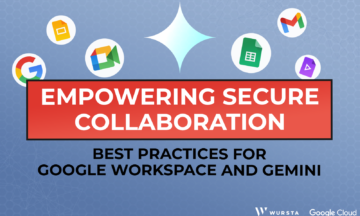Optimism for the Impacts of AI on Work

A recent article by the Editorial Team at UBS Group AG, a multinational investment bank and financial services company, quips, “No, this wasn’t written by ChatGPT…but it probably could have been.” Personally, I think my writing contains unique views and insights that can’t be duplicated by AI… yet.
Conjecture and arrogance aside, there’s no doubt that AI can handle some tasks currently performed by humans, thus reducing the work we need to. The questions become, what will AI do, and what effect will that have on humans? One insightful person on Twitter wrote, “A world where AI paints and writes poems and songs while humans perform menial, back-breaking tasks wasn’t the future I imagined.”
Is AI Coming for Your Job?
AI has extensive capabilities, and new use cases emerge on a near daily basis. AI chatbots can answer many common questions, reducing the workload for customer service reps. Concerns about AI resulting in the loss of jobs are reasonable. The UBS Editorial Team states, “There are certainly historical cases of job displacement due to new technology adoption, and ChatGPT may unseat some office workers or customer service reps. However, we think AI tools broadly will end up as part of the solution in an economy that has more job openings than available workers.”
AI’s Impact Will Be Net Additive
A Goldman Sachs study published March 26, 2023, concluded that AI’s ascendance would disrupt 300 million jobs. “If generative AI delivers on its promised capabilities, the labor market could face significant disruption. Using data on occupational tasks in both the US and Europe, we find that roughly two-thirds of current jobs are exposed to some degree of AI automation, and that generative AI could substitute up to one-fourth of current work.”
Fortunately, the automation of work doesn’t have to equate to elimination of jobs.
The UBS Editorial Team writes, “However, economic history shows that technology of any sort… ultimately makes productive workers more productive and is net additive to employment and economic growth.”
Further Optimism on AI’s Impact on Jobs
In an in-depth article on the age of AI, Bill Gates writes, “Advances in AI will enable the creation of a personal agent. Think of it as a digital personal assistant…. You’ll be able to use natural language to have this agent help you with scheduling, communications, and e-commerce, and it will work across all your devices…. I believe that the result will be that employees will become more productive.”
The Goldman Sachs study states, “The good news is that worker displacement from automation has historically been offset by creation of new jobs, and the emergence of new occupations following technological innovations accounts for the vast majority of long-run employment growth.”
Google Workspace is Evolving to Incorporate AI
I wrote on the Wursta Blog about Google’s new AI releases, announced on March 14. Google has already leveraged AI as a transformational component, with time-saving advances like Smart Compose and Smart Reply, and auto-generated Summaries in Google Docs.
Google has also shared its broader vision for how they are evolving to incorporate AI across the entire Workspace collection of tools.
Duet AI for Google Workspace: Eliminating Tasks, Easing Writing, & Easter Eggs
On May 10, Google introduced Duet AI for Google Workspace. “From the very beginning, Google Workspace was built to allow you to collaborate in real time with other people. Now, you can collaborate with AI.”
Duet AI already works behind the scenes in Workspace to help you write, and now Google is bringing this experience to Gmail mobile. Google is also embedding Duet AI into Slides so you can easily generate images with a few words. In Google Sheets, Duet AI will help you analyze and act on your data faster with automated data classification and the creation of custom plans. Finally, in Google Meet, Duet AI will enable you to generate unique backgrounds for your video calls.
The “Help me write” AI assistant on Gmail’s mobile app includes an “I’m feeling lucky” button, which delivers Easter egg style surprises, such as haikus or responses in a pirate voice.
According to The Verge, Google teased a new feature called “Sidekick” that’s able to read, summarize, and answer questions on documents across different Google apps. Sidekick appears similar to the “personal agent” that Bill Gates envisions. In one example, Sidekick analyzed the contents of an email chain about an upcoming potluck and looked at linked documents to suggest a good accompanying dish.
Working Alongside AI
We should expect to see increased applications with AI, as it helps make our lives easier and more comfortable, while also making work more productive. One Forbes contributor advises, “One of the best ways to stay ahead of the curve and ensure that you remain relevant is to adapt to the rapid changes by continually educating and upskilling yourself or asking your employer to enroll you in courses that will enable you to take advantage of the new future of work.”Workers will not intuitively know how to best leverage these new tools or even which ones they should be using. Wursta is here to help you get the most out of Google’s AI tools by providing training and change management. With support from Wursta, your staff can help your organization succeed in this new AI-driven world.


